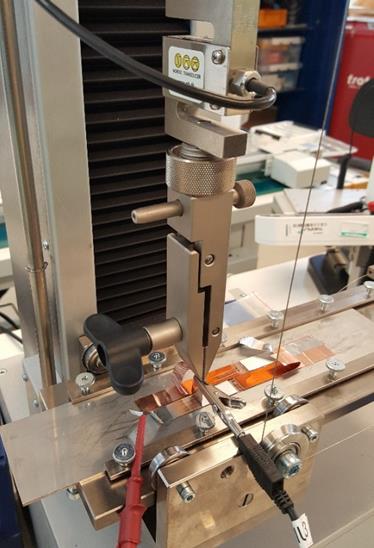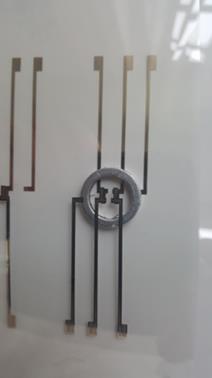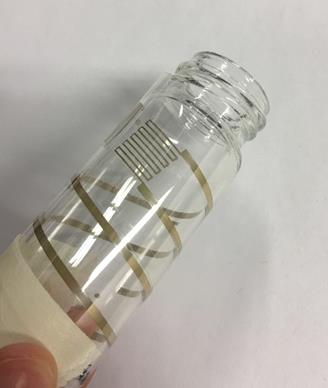KYMIRA
success story
Development of sustainable manufacturing processes and componentry for flexible electronic circuitry for electronic textile applications
Kymira is a private limited life-conscious company with the fundamental aim of enhancing people’s lives through innovation. The company was founded in 2013 and is one of the leading smart textile companies in the world. Its smart garments enhance the performance of athletes, aid circulation, accelerate recovery, and monitor and report on human well-being.
The main objective of the innovation project within the KET4CleanProduction was to establish a scalable additive manufacturing process for flexible electronic circuit strips (e-strips) on suitable substrates. The company was creating e-strips with a subtractive photolithography process that produces excess waste copper material, so the specific objective of production process improvement was to reduce the generation of waste and pollution. Furthermore, the goal of this project was to investigate new ink, encapsulant and conductive adhesive formulations that enable the recycling of the components in the electronic strip at the end of product life. Presently, at the end of the e-strips life, due to the materials used in the strip construction, the company cannot recycle the e-strips, and they are simply disposed of. As the e-strips are designed for clothing, which can be subject to various conditions, the e-strips’ life is limited. The end-of-life process is costly, wasteful and damaging to the environment.


KET Technology Centers involved
IPA - Fraunhofer Institut für Produktionstechnik und Automatisierung | Germany
RISE | Sweden



The project aimed to optimise the performance, cost and robustness of the e-strip, focusing on component recycling and sustainability. The capability to integrate nearly any microelectronic component on a flexible substrate for an array of applications in wearable technology had been developed. Also, the solutions for mass manufacturing of the e-strips were investigated.
Those were previously made singularly in a subtractive photolithography manned process, which was not a scalable solution as it produced sizable copper waste product and was arduous. One of the principal project outcomes was the identification of silver ink as a candidate for use on the e-strips. Test rig demonstrator structure and outlined a mass manufacturing sequence for using this ink to produce e-strips were designed. The shift from the old subtractive copper photolithography printing process of the e-strips to new additive inkjet printing greatly reduces the waste material produced in the manufacture of the e-strips. Further, the transition to silver from copper ink reduces the required amount of ink on an e-strip due to silver's higher conductivity.



A tremendous success factor was navigating and progressing project development throughout the uncertainty of the ongoing COVID-19 pandemic.
Despite the difficulties that affected all the partners, project goals were realigned, and the implementation was conducted without compromising primary objectives. Both KET TCs were very capable and committed to guiding project expectations and delivering upon the objectives. The company plans to continue the collaboration with the TCs in the future.
The work undertaken by the KETTCs has exceeded our initial expectations and really given us something to build on in our e-strip development. Having left this project to our project lead to manage and direct, I am really impressed by what the team has been able to produce in such a short space of time. KYMIRA and our partners will directly take the outputs from this micro grant project into our future development work for the e-strips and we firmly believe the work achieved will have a lasting benefit to our overall production process and product success.
